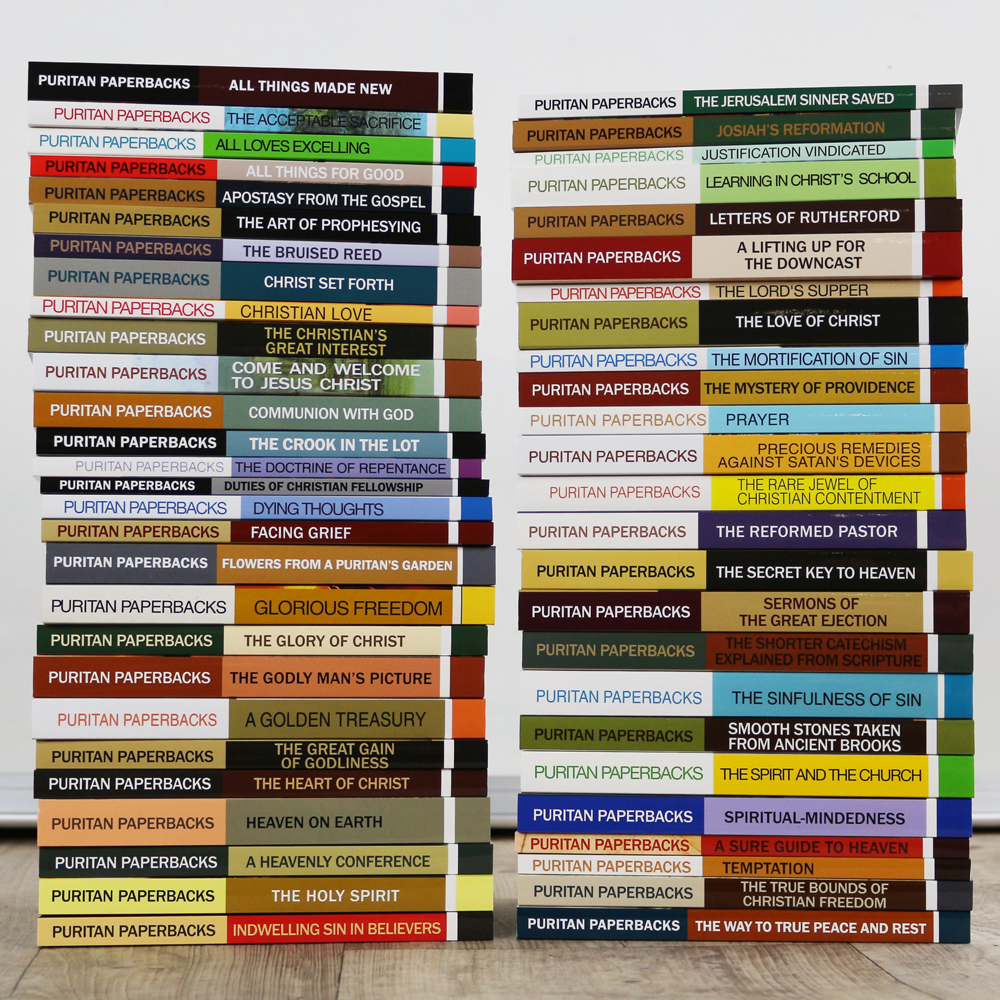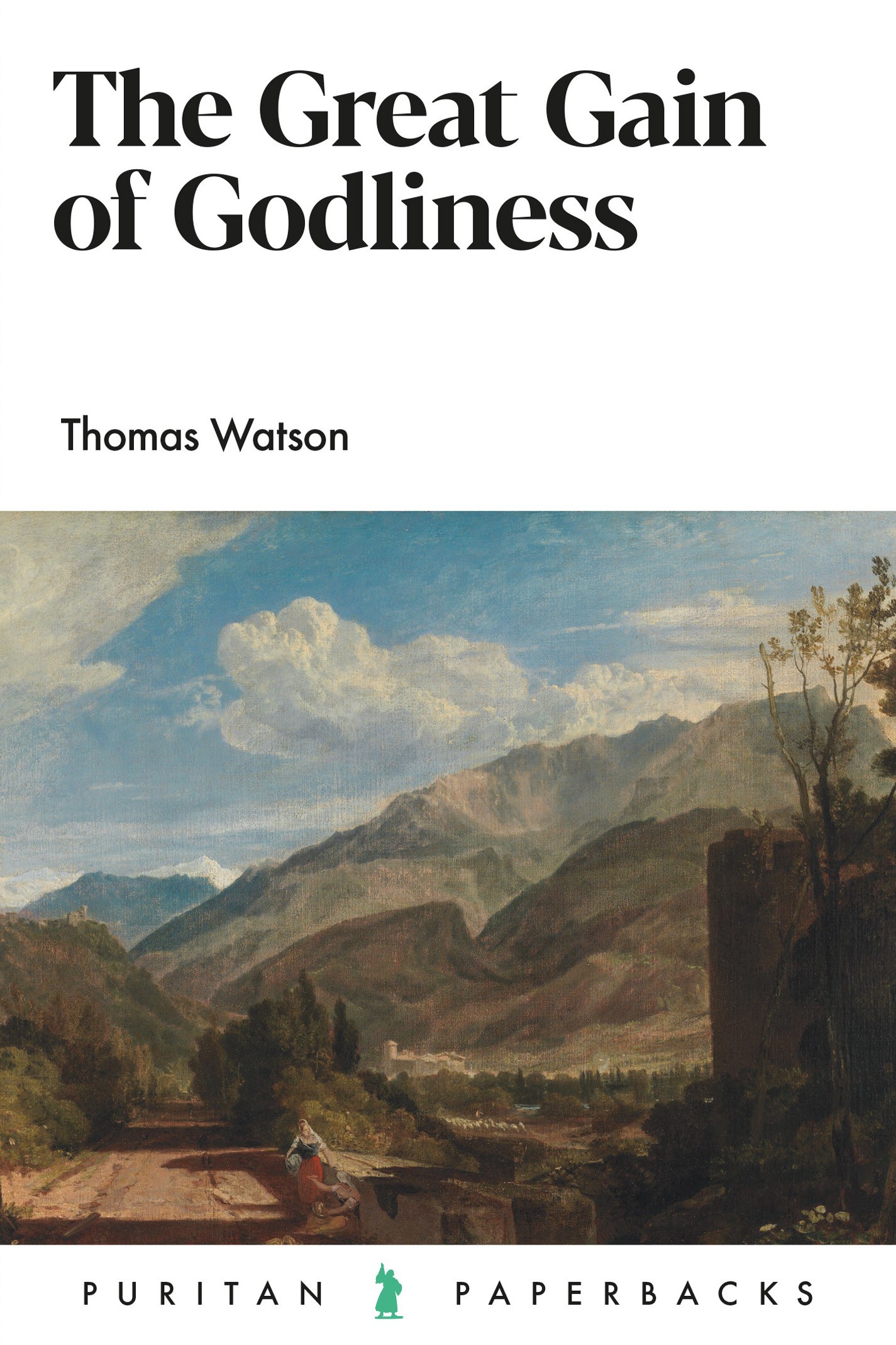The Great Gain of Godliness
Practical Notes on Malachi 3:16-18
| Weight | 0.19 kg |
|---|---|
| Dimensions | 18.1 × 12.1 × 1.3 cm |
| ISBN | 9781800403093 |
| page-count | 176 |
| format | Book |
| Original Pub Date | 1682 |
| Banner Pub Date | Jun 1, 2006 |
| topic | Life Issues, Spiritual Growth |
| Binding | Paperback |
| scripture | Malachi |
| series | Puritan Paperbacks |
| This Edition | 2022 |
Book Description
C. H. Spurgeon had a well-stocked library of around 12,000 volumes. However, one rare book was not to be found amongst that valuable collection: Thomas Watson on Malachi 3:16-18. With a note of sadness in his voice he said to his College students: ‘This volume would be a great find if we could come at it, for Watson is one of the clearest and liveliest of Puritan authors. We fear we shall never see this commentary, for we have tried to obtain it, and tried in vain’.
In this reset and lightly edited edition you can now read the book that was on Spurgeon’s ‘wish-list’! The Great Gain of Godliness is Watson’s exposition of Malachi 3:16-18. In it he aims ‘to encourage solid piety and confute the atheists of the world, who imagine there is no gain in godliness.’ This book has all the hallmarks of Thomas Watson’s other writings: a combination of rich spirituality, nourishing doctrine, and sane practical wisdom coupled with fascinating illustrations and a very pleasant style.
Table of Contents Expand ↓
| Author’s Preface | vii | |
| Publisher’s Preface | ix | |
| PART ONE | ||
| THE CHARACTER OF THE GODLY | ||
| 1 | Holding Fast in Evil Days | 3 |
| 2 | The Godly and the Fear of God | 12 |
| 3 | Reasons to Fear God | 17 |
| 4 | Walking in the Fear of God | 19 |
| 5 | The Excellence of the Fear of God | 25 |
| 6 | Is the Fear of God in Our Hearts? | 37 |
| 7 | The Godly Should Speak of God | 62 |
| 8 | The Godly Should Meditate on God’s Name | 76 |
| PART TWO | ||
| THE GOOD EFFECTS OF GODLINESS | ||
| 9 | God Regards the Piety of His People | 95 |
| 10 | God Records the Piety of His People | 101 |
| 11 | God Rewards the Piety of His People | 111 |
| 12 | God Rewards His People by Owning Them | 119 |
| 13 | God Rewards His People by Honouring Them | 126 |
| 14 | God Rewards His People by Sparing Them | 141 |
| 15 | The Righteous and the Wicked Discerned | 150 |
| 16 | A Consolation in Affliction | 155 |
Reviews
About the author
Thomas Watson (c. 1620-1686), the Puritan preacher and author, was probably born in Yorkshire, although the exact place and date of his birth are unknown. He studied at Emmanuel College, Cambridge … Read More >>
You may also like…

Puritan Paperbacks Series
Number of volumes depends on availability
Description
A lightly-edited version of Watson’s exposition of Malachi 3:16–18. 176pp.
More items to consider:

Romans 12
Volume 12: Christian Conduct
Description
A lightly-edited version of Watson’s exposition of Malachi 3:16–18. 176pp.

Ephesians
Volume 1: God's Ultimate Purpose (1:1-23)
Description
A lightly-edited version of Watson’s exposition of Malachi 3:16–18. 176pp.

Romans 2:1-3:20
Volume 2: The Righteous Judgement of God
Description
A lightly-edited version of Watson’s exposition of Malachi 3:16–18. 176pp.


Robert Norman –
Wonderful work from Watson. If you need to grow in godliness, which you do, then read this book.
Jon –
Thomas Watson is one of my favorite Puritan authors. As I read his writings, I can tell he walked with God, knew God, and drew strength for his ministry from his presence. That is what I love about the Puritans and this work specifically, the ability of Watson to concisely make us consider our union with Christ through inquiring if we have the fear of God in our hearts.
The first book I read by Thomas Waston was ‘The Doctrine Of Repentance,’ from there I read ‘All things for Good,’ then ‘The Godly Man’s Picture,’ and now the ‘Great Gain of Godliness.’
Thomas Watson studied at Emmanuel College in Cambridge, one of the greatest Puritan seminaries. This is where William Perkins taught who wrote, ‘The Art of Prophesying,’
Out of all the volumes Spurgeon had in his library, he was unable to find this one. Thank you for making this available Banner.